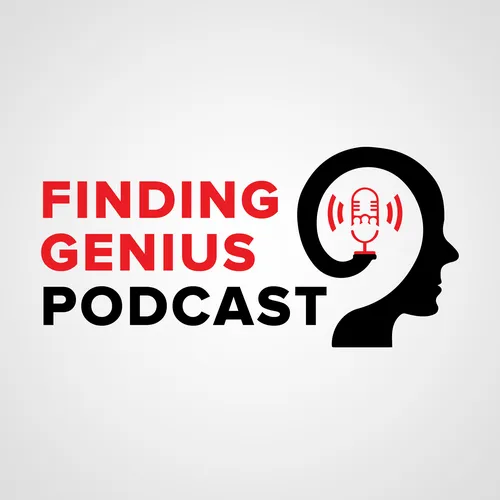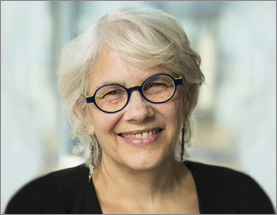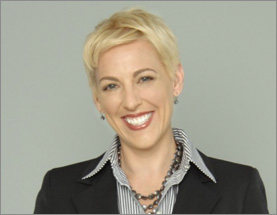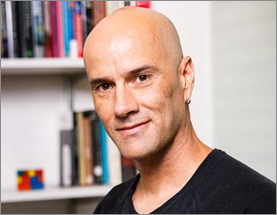
Finding Genius Podcast
Podcast interviews with genius-level (top .1%) practitioners, scientists, researchers, clinicians and professionals in Cancer, 3D Bio Printing, CRISPR-CAS9, Ketogenic Diets, the Microbiome, Extracellular Vesicles, and more.
Subscribe today for the latest medical, health and bioscience insights from geniuses in their field(s).
- Update frequency
- every day
- Average duration
- 32 minutes
- Episodes
- 4192
- Years Active
- 2016 - 2025

Studying How Normal Cells are Formed to Understand How Cancer Forms with Dr. Ana M. Soto
Dr. Ana Soto is a Professor of Immunology at Tufts University who by training is a physician with a deep interest in science. She began working in labs while attending the university and eventually d…

Exploring Current Research Efforts and Computational Biology to Learn About the Origin and Evolution of Life with Joana C. Xavier
One of the most profound questions in life is how did cells first materialize on Earth? Joana C. Xavier, Ph.D. is a scientist at University College London, bioengineer, and author who has focused her…

Deuterated Water and Effects of Nutrition on Disease - Dr. Petra Davelaar Discusses Functional Medicine
How can the water you drink contribute to the formation or treatment of cancer? Deuterium present in the water may play a significant role. Press play to learn:
- What heavy water is
- How deuterium fac…

Utensils for Conscious Consumption: A New Way to Be Intentional About How You Eat
When you’re out and about and stop for a bite to eat, what else are you putting in your body with those plastic utensils?
Well…plastic. Leaching from plasticware is real, and it could be causing dam…

Understanding the Possibilities of Next Generation Biotherapeutics With Beverly Mok
Beverly Mok is a graduate student in Chemistry and Chemical Biology at Harvard University. She is currently working in the complex field of genes and genomics focusing on genome editing in the David…

Shining a Non-Linear Light on New Applications in Nuclear Physics
Turn lead into gold?
Yes, it’s possible. But according to Denys Bondar, PhD, that’s beside the point. He’s asking this question: can any substance be made to look like any other one?
Press play to ex…

Innovatively Balancing Sugar Highs and Lows with Dr. David Kendall
This year marks the 100th anniversary of the discovery of insulin as a treatment for diabetes. For the past several decades, innovation in the diabetes space has reached unprecedented levels. Dr. Dav…

Bioethics on Health and Novel Human Genetic Technologies - A Detailed Conversation with Françoise Baylis
What are the ethical limits of human genetic engineering? While there may never be a firm answer to this question, it is critically important to contemplate possible limitations. Listen in to learn:
- …

Using Gene Therapies to Fight Cancer and Tumor Cell Therapeutics - An In-Depth Discussion with Eric Ostertag
How can cancer be treated differently than how many others have accepted as standard? Gene therapy may be the solution to change the course of cancer treatment. Listen in to learn:
- The chances of g…

Plasmalogens and Longevity - Dr. Dayan Goodenowe Discusses Age-Related Diseases and how Age Affects Health
How can plasmalogens lead researchers to discoveries in age-related disease? By giving clues of how various bodily functions work, they may be the missing piece of the puzzle. Press play to learn:
- …

Humanizing Healthcare Through the Lens of a Paramedic-Turned-Physician and Digital Care Activation Platforms Discussed with Dr. Summer Knight
Can the healthcare experience be made more comfortable and humanized? Research may show that seeking more holistic care may make some treatments and experiences more beneficial. Press play to learn…

Using Detoxing and Therapeutic Grade Herbal Formulas to Heal the Body Naturally With Nykki Hardin, Founder of 21 Cleanse
As a world traveller, Nykki Hardin has learned about time-tested and proven methods to heal the body mentally and emotionally. She used the knowledge gained from her travels working with experts in f…

Molecular and Cellular Biology of Viruses and Biochemical Balance - An In-Depth Discussion with Dr. Sandy Bevacqua
How can the body's equilibrium impact your overall health and immune system's strength? By maintaining blood chemistry balance, your body may be able to fight off disease that to which it may have be…

Exploring the Significant Intelligence of One of the Top Talking Birds, the African Grey Parrot, with Irene Pepperberg, Ph.D.
With the help of an African Grey parrot named Alex, Irene Pepperberg, Ph.D. has conducted years of research that helped the world understand the unique and amazing communication abilities of Grey par…

Regulatory Gene Expression, RNA Molecules, and Molecular Biology Techniques Discussed with Professor Ailong Ke
How do various CRISPR systems interact with the body in beneficial ways? Using different techniques, specific immunity systems may be targeted and cleaved. Listen up to learn:
- How molecules are tar…

The Superpower of a Robe — Transforming Post-Op Life with Allison Schickel
The aftermath can be just as challenging and uncomfortable—the aftermath of major surgery, that is.
Tune in to learn about a revolutionary product that’s changing the post-op lives of thousands.
You’…

Neurodegenerative Diseases and Optic Neuropathy Treatments for Blinding Conditions Explained By Dr. Bernard Gilly
How can historically misunderstood retinal neurodegenerative diseases be researched and treated? New discoveries may lead to continuing advancements in treatment for previously thought to be untreat…

Breakdown of Cancer Cells, Their Behavior, and the Multicellular Structure of Tumors with Luis Cisneros
How can new cancer therapies and treatments emerge along with the understanding of cancer cell's behavior? By learning how cells communicate and proliferate, researchers may be able to find new solu…

Vaccines: The What, How, and Why with Maria Elena Bottazzi
Many of us will take a vaccine without thinking twice about it. But how are they developed, how do they even work, and how are they tested for safety?
Press play to learn:
- What happens when proteins…

Opening a Can of Worms on Infectious Disease Susceptibility and Varied Immune Responses
How many parasitic worms do you have in your gut, and how long have they been there? The answer comes with some surprising implications.
Tune in to discover:
- What the “weep and sweep” immune respons…